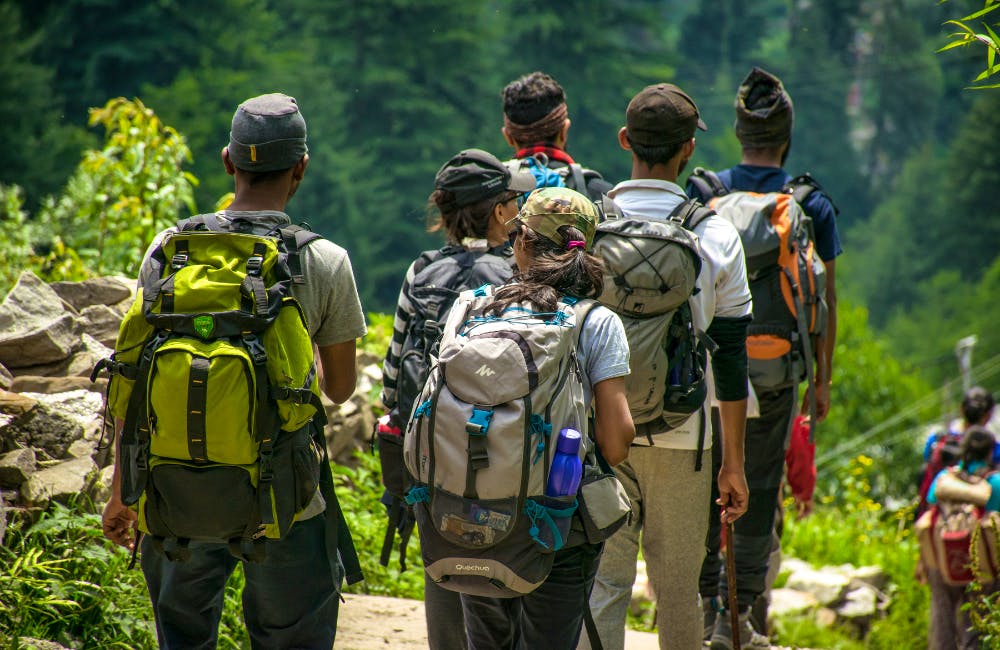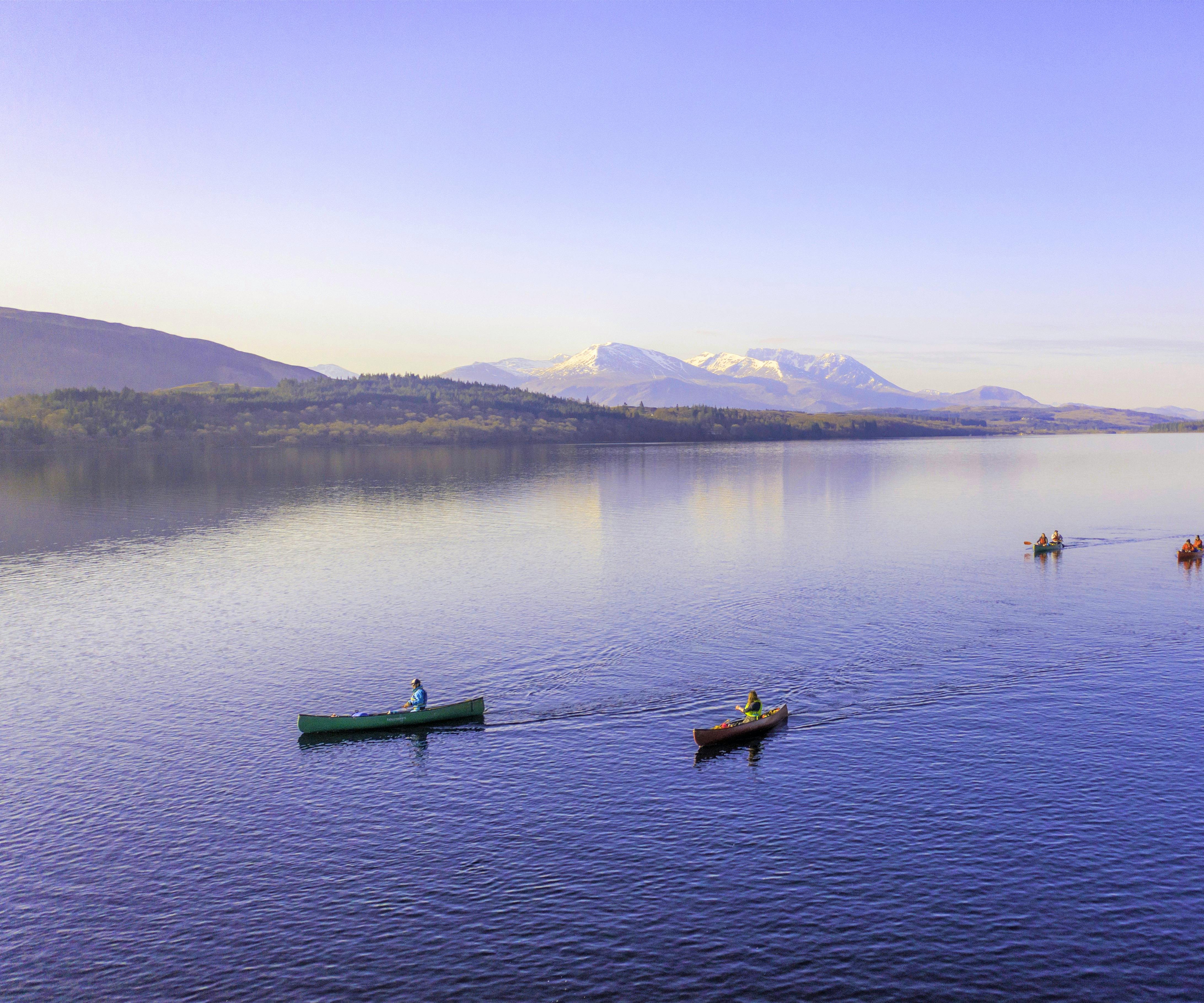Hiking Vs. Walking: Are They the Same Thing, Or?
Have you ever found yourself debating whether your weekend tour through the local woods counts as a hike or just a particularly ambitious walk? This is the very question that bothers so many, even us at Skyhook, sometimes.
It's a puzzle that's sparked many a fireside debate: Where exactly do we draw the line between a walk and a hike? Is it about the distance covered, the terrain tackled, or perhaps the state of your legs afterwards?
Here's what you should know!

The Basics: What's in a Name Walking Vs. Hiking?
At first glance, hiking and walking might seem like two peas in a pod. After all, both involve putting one foot in front of the other, right? But as any seasoned outdoor enthusiast will tell you, there's more to it than meets the eye.
Walking is our most basic form of transportation. It's what gets us from the couch to the fridge, or from the car park to the office. It's an everyday activity that most of us do without a second thought.
Hiking, on the other hand, implies something more intentional. It's walking with a purpose, often in natural settings and on trails rather than sidewalks.
But the differences go beyond just the setting.

What Is the Difference Between Walking and Hiking?
Here are some differences between hiking and walking that should clarify a few things:
1. Terrain
Walking typically takes place on relatively flat, even surfaces. Think sidewalks, park paths, or maybe a well-maintained track around a lake. The ground beneath your feet is usually predictable, and you're unlikely to encounter any major obstacles.
Hiking, however, often involves more challenging terrain. You might be climbing up steep inclines, navigating rocky paths, or crossing streams. The surface can be uneven, slippery, or unstable.
2. Gear
The gear you need for walking and hiking can also be quite different. For a walk, you can usually get by with whatever comfortable shoes you have on hand.
A pair of trainers or casual shoes will do the trick for most walks. You might grab a water bottle if it's a longer walk, but that's about it.
But if you go hiking, you need more specialised gear. A good pair of hiking boots or shoes is essential to provide support and traction on uneven terrain.
You'll likely need a backpack to carry water, snacks, and other essentials. Depending on the hike, you might also need things like trekking poles, a map and compass, or even camping gear for multi-day adventures. Here's what to bring hiking!

Latest Deals
3. Physical Demands
Both walking and hiking can be great forms of exercise, but they typically demand different levels of physical effort.
Walking is generally a low-impact activity that most people can do without much preparation. It's an excellent way to get your daily steps in, improve cardiovascular health, and clear your mind. The intensity can vary, but most walks don't push you to your physical limits.
To hike, you'll require a higher level of fitness. You're typically covering longer distances, dealing with elevation changes, and navigating challenging terrain.
All of this adds up to a more intense workout. Hiking can test your endurance, strength, and balance in ways that a casual walk usually doesn't.

4. Duration and Distance
Another factor that often distinguishes hiking from walking is the duration and distance of the activity.
Walks are typically shorter and last anywhere from 15 minutes to a couple of hours, covering a few kilometres at most. They're often part of our daily routines - a quick jaunt around the block or a leisurely weekend stroll in the park.
On the other hand, Hikes tend to be longer and can last several hours or even multiple days. The distances covered are usually greater, and the pace might be slower due to the more challenging terrain.
On our Skyhook day hikes, we're often out for 6-8 hours, covering anywhere from 10 to 20 kilometres. On our trekking trips, like the Tour du Mont Blanc, we hike for several days in a row, covering over 100 kilometres in total.
5. Purpose and Mindset
Perhaps one of the most significant differences between walking and hiking lies not in the physical activity itself, but in the purpose and mindset behind it.
Walking is often utilitarian or casual. We walk to get from A to B, to exercise the dog, or to get some fresh air and light exercise. It's usually close to home and doesn't require much planning or preparation.
But hiking is typically more goal-oriented. People go hiking to challenge themselves, to reach a specific destination (like a mountain summit or a scenic viewpoint), or to immerse themselves in nature.
It often involves more planning and preparation, and there's usually a sense of adventure or accomplishment associated with it.
6. The Outdoors
The environment in which these activities take place is another key differentiator.
You can walk anywhere - in urban environments, suburban neighbourhoods, or natural settings. You might walk down a city street, around a local park, or on a treadmill at the gym.
However, hiking, by definition, typically takes place in more natural environments. You can hike through forests, mountains, coastlines, or open moorland. The focus is often on connecting with nature and experiencing landscapes that you can't access by car or regular walking paths.

So, Which One is Right for You?
There's no need to choose sides in this debate. Both walking and hiking have their place in a healthy, active lifestyle.
If you want an easy way to stay active in your daily life, consider walking. It's low-impact, requires minimal gear, and can be done almost anywhere.
But if you're craving adventure, want to challenge yourself physically, and long to explore the great outdoors, then plan a hike or two with Skyhook. Start with some easier trails and gradually work your way up to more challenging hikes.
So, is that weekend outing through the woods a hike or just a long walk? Well, it might depend on the woods, your gear, your purpose, and how you feel at the end. But here's a secret: it doesn't really matter what you call it. What matters is that you're out there, moving your body and enjoying nature.
Find your next adventure
Why Skyhook?
Join over 27,000 Skyhook adventurers who've used our platform to book directly with our vetted local guides, at local prices (we never markup).
Expert Local Guides
Experienced local guides, handpicked by us.
Best Prices
Never pay a markup on the local guide's price.
Exclusive Club
Earn loyalty rewards every time you travel.
Great Social Vibes
Small group tours provide a richer experience.
Stellar Feedback
Over 2,800 reviews, average of 4.9/5 stars.












